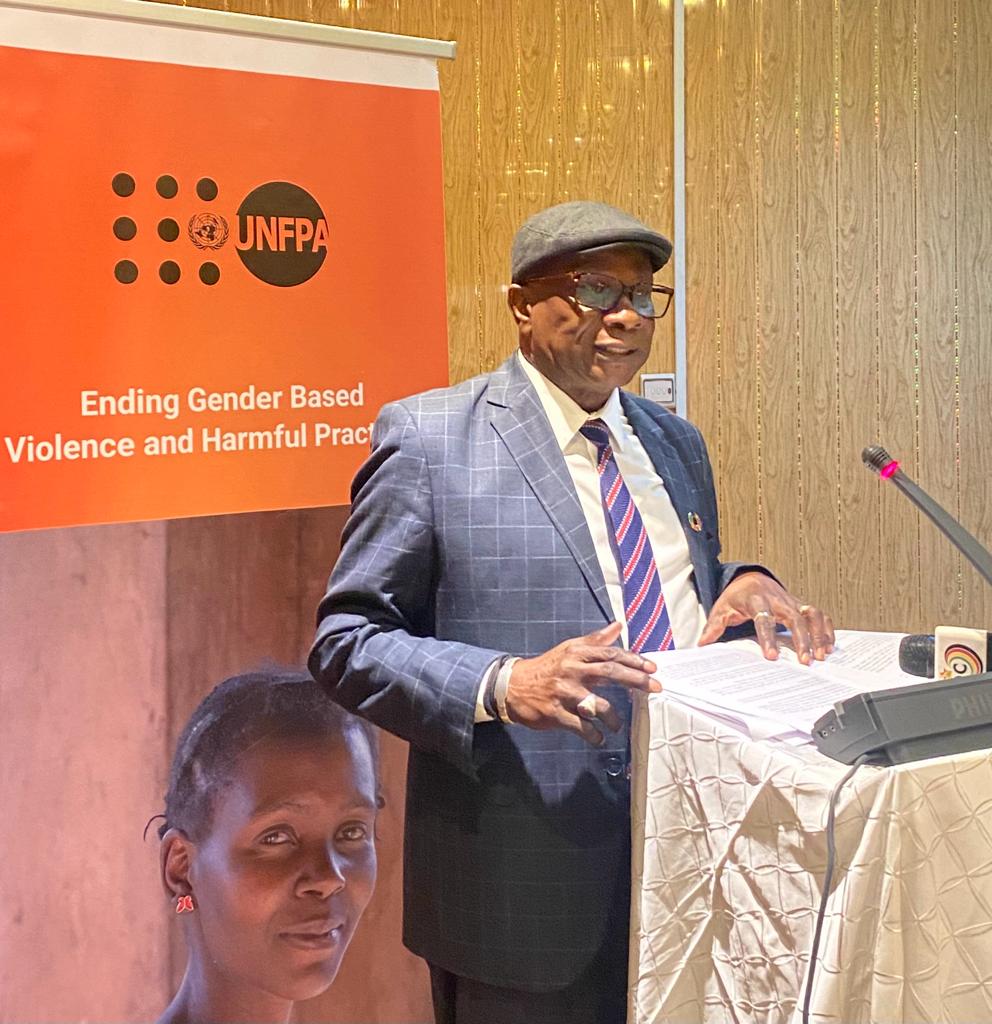|
Getting your Trinity Audio player ready…
|
To achieve sustainable development as the world population has reached 8 billion people, policies must prioritize the well-being of both people and the environment.
These were remarks today by His Excellency Edward Kallon, UN Resident and Humanitarian Coordinator at the belated launch of the State of World Population Report and commemoration of World Population Day held under the theme “EIGHT billion lives, infinite possibilities: the case for rights and choices.”
“Notwithstanding the infinite possibilities, we must not ignore the challenges that come with a world state of population where eight billion lives intersect. Balancing the needs and aspirations of an ever-growing population with the limits of our planet’s resources is no simple task. It requires sustainable and inclusive policies that prioritize the well-being of both people and the environment.
“Education, particularly for girls and women, is key to addressing these challenges. Educated individuals are more likely to make informed choices and contribute to sustainable development. Investing in QUALITY education, particularly in disadvantaged communities, can help break the cycle of poverty, decrease birth rates, and empower individuals to become responsible global citizens,” HE Kallon said.
He said understanding the interconnectedness of people’s actions and their impact on the planet is critical and encouraged stakeholders to embrace renewable energy, sustainable agriculture, and responsible consumption practices to ensure a world that thrives for future generations.
Speaking on the same occasion, UNFPA Deputy Country Representative Dr. Gulnara Kadrykulova alluded to the theme for this year’s commemorations: “Unleashing the power of gender equality: Uplifting the voices of women and girls to unlock our world’s infinite possibilities”.
The Deputy Representative bemoaned statistics that reveal that 4 billion women and girls – half of humanity – face discrimination solely based on their gender.
Thirty years ago, the International Conference on Population and Development (ICPD) set out to achieve a world in which people lived longer, healthier lives and enjoyed more rights and choices than ever before.
This vision has become a reality for many; in fact, the human population is at its highest number ever, thanks in large part to improvements in health care and increased longevity.
UNFPA Executive Director, Ms Natalia Kanem, in a speech read on her behalf said while stakeholders celebrate the progress that has been made, they must also recognize that for millions, even billions, of others this promise remains out of reach.
“This World Population Day is a reminder that we can achieve the prosperous, peaceful, and sustainable future envisioned by the ICPD and the 2030 Agenda for Sustainable Development if we harness the power of every human being on the planet. When we unlock the full potential of women and girls – encouraging and nurturing their desires for their lives, their families, and their careers – we galvanize half the leadership, ideas, innovation, and creativity to better society.
“Realizing sexual and reproductive health and rights for all is the foundation for gender equality, dignity, and opportunity. Nevertheless, over 40 percent of women around the world cannot exercise their right to make decisions as fundamental as whether or not to have children. Empowering women and girls, including through education and access to modern contraception, helps to support them in their aspirations — and to chart the path of their own life,” she said
She added that advancing gender equality is a cross-cutting solution to many population concerns. In ageing societies that worry about labour productivity, achieving gender parity in the workforce is the most effective way to improve output and income growth. Meanwhile, in countries experiencing rapid population growth, women’s empowerment through education and family planning can bring enormous benefits by way of human capital and inclusive economic growth.
Thirty years ago, the world united behind a shared vision of the future, one that recognized the rights of women and girls as central to global development.
“The solution is clear: Accelerating the advancement of gender equality – through access to sexual and reproductive health and rights, improved education, appropriate labour policies, and equitable norms in the workplace and home – will result in healthier families, stronger economies, and resilient societies.
“That message of gender equality is as powerful today as it was then; our resolve must be as well. Let us unite once more to imagine a world in which every one of us has the equal opportunity to thrive, and let us join forces to ensure a reality in which every nation’s real wealth – no matter its size or stage of development – is its people, and that means all people, not half.”
On commemoration of World Population Day and launch of the State of the World Population, the situation for women and girls in Zimbabwe needs attention:
- 4% of women and girls aged 15-49 experienced physical violence since the age of 15
- 49% of ever–married adolescent girls and women aged 15-49 have experienced some form of emotional, physical, or sexual violence committed by their intimate partner
- High child marriages with 33.7% of women aged 20-24 were married or in a union before 18 years
- High teenage pregnancy (42% increase in first ANC visits by under 16 girls)
- High Maternal Mortality Rates – 25-30% of all maternal deaths are among adolescent girls
- High unmet need for family planning in young people (12.6%)
- High HIV and Sexually Transmitted Incidence; high drug and substance abuse cases affected young people
